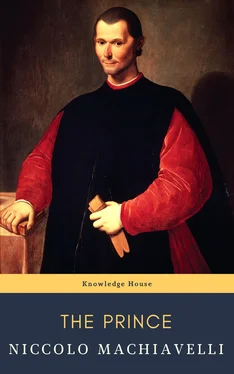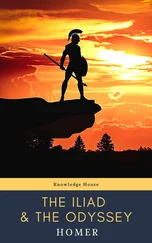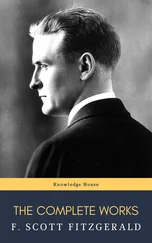But to get a clearer understanding of this part of our subject, we must look whether these innovators can stand alone, or whether they depend for aid upon others; in other words, whether to carry out their ends they must resort to entreaty, or can prevail by force. In the former case they always fare badly and bring nothing to a successful issue; but when they depend upon their own resources and can employ force, they seldom fail. Hence it comes that all armed Prophets have been victorious, and all unarmed Prophets have been destroyed.
For, besides what has been said, it should be borne in mind that the temper of the multitude is fickle, and that while it is easy to persuade them of a thing, it is hard to fix them in that persuasion. Wherefore, matters should be so ordered that when men no longer believe of their own accord, they may be compelled to believe by force. Moses, Cyrus, Theseus, and Romulus could never have made their ordinances be observed for any length of time had they been unarmed, as was the case, in our own days, with the Friar Girolamo Savonarola, whose new institutions came to nothing so soon as the multitude began to waver in their faith; since he had not the means to keep those who had been believers steadfast in their belief, or to make unbelievers believe.
Such persons, therefore, have great difficulty in carrying out their designs; but all their difficulties are on the road, and may be overcome by courage. Having conquered these, and coming to be held in reverence, and having destroyed all who were jealous of their influence, they remain powerful, safe, honoured, and prosperous.
To the great examples cited above, I would add one other, of less note indeed, but assuredly bearing some proportion to them, and which may stand for all others of a like character. I mean the example of Hiero the Syracusan. He from a private station rose to be Prince of Syracuse, and he too was indebted to Fortune only for his opportunity. For the Syracusans being oppressed, chose him to be their Captain, which office he so discharged as deservedly to be made their King. For even while a private citizen his merit was so remarkable, that one who writes of him says, he lacked nothing that a King should have save the Kingdom. Doing away with the old army, he organized a new, abandoned existing alliances and assumed new allies, and with an army and allies of his own, was able on that foundation to build what superstructure he pleased; having trouble enough in acquiring, but none in preserving what he had acquired.
Chapter 7 Of New Princedoms Acquired By the Aid of Others and By Good Fortune
They who from a private station become Princes by mere good fortune, do so with little trouble, but have much trouble to maintain themselves. They meet with no hindrance on their way, being carried as it were on wings to their destination, but all their difficulties overtake them when they alight. Of this class are those on whom States are conferred either in return for money, or through the favour of him who confers them; as it happened to many in the Greek cities of Ionia and the Hellespont to be made Princes by Darius, that they might hold these cities for his security and glory; and as happened in the case of those Emperors who, from privacy, attained the Imperial dignity by corrupting the army. Such Princes are wholly dependent on the favour and fortunes of those who have made them great, than which supports none could be less stable or secure; and they lack both the knowledge and the power that would enable them to maintain their position. They lack the knowledge, because unless they have great parts and force of character, it is not to be expected that having always lived in a private station they should have learned how to command. They lack the power, since they cannot look for support from attached and faithful troops. Moreover, States suddenly acquired, like all else that is produced and that grows up rapidly, can never have such root or hold as that the first storm which strikes them shall not overthrow them; unless, indeed, as I have said already, they who thus suddenly become Princes have a capacity for learning quickly how to defend what Fortune has placed in their lap, and can lay those foundations after they rise which by others are laid before.
Of each of these methods of becoming a Prince, namely, by merit and by good fortune, I shall select an instance from times within my own recollection, and shall take the cases of Francesco Sforza and Cesare Borgia. By suitable measures and singular ability, Francesco Sforza rose from privacy to be Duke of Milan, preserving with little trouble what it cost him infinite efforts to gain. On the other hand, Cesare Borgia, vulgarly spoken of as Duke Valentino, obtained his Princedom through the favourable fortunes of his father, and with these lost it, although, so far as in him lay, he used every effort and practised every expedient that a prudent and able man should, who desires to strike root in a State given him by the arms and fortune of another. For, as I have already said, he who does not lay his foundations at first, may, if he be of great parts, succeed in laying them afterwards, though with inconvenience to the builder and risk to the building. And if we consider the various measures taken by Duke Valentino, we shall perceive how broad were the foundations he had laid whereon to rest his future power.
These I think it not superfluous to examine, since I know not what lessons I could teach a new Prince, more useful than the example of his actions. And if the measures taken by him did not profit him in the end, it was through no fault of his, but from the extraordinary and extreme malignity of Fortune.
In his efforts to aggrandize the Duke his son, Alexander VI had to face many difficulties, both immediate and remote. In the first place, he saw no way to make him Lord of any State which was not a State of the Church, while, if he sought to take for him a State belonging to the Church, he knew that the Duke of Milan and the Venetians would withhold their consent; Faenza and Rimini being already under the protection of the latter. Further, he saw that the arms of Italy, and those more especially of which he might have availed himself, were in the hands of men who had reason to fear his aggrandizement, that is, of the Orsini, the Colonnesi, and their followers. These therefore he could not trust. It was consequently necessary that the existing order of things should be changed, and the States of Italy thrown into confusion, in order that he might safely make himself master of some part of them; and this became easy for him when he found that the Venetians, moved by other causes, were plotting to bring the French once more into Italy. This design he accordingly did not oppose, but furthered by annulling the first marriage of the French King.
Конец ознакомительного фрагмента.
Текст предоставлен ООО «ЛитРес».
Прочитайте эту книгу целиком, купив полную легальную версию на ЛитРес.
Безопасно оплатить книгу можно банковской картой Visa, MasterCard, Maestro, со счета мобильного телефона, с платежного терминала, в салоне МТС или Связной, через PayPal, WebMoney, Яндекс.Деньги, QIWI Кошелек, бонусными картами или другим удобным Вам способом.












